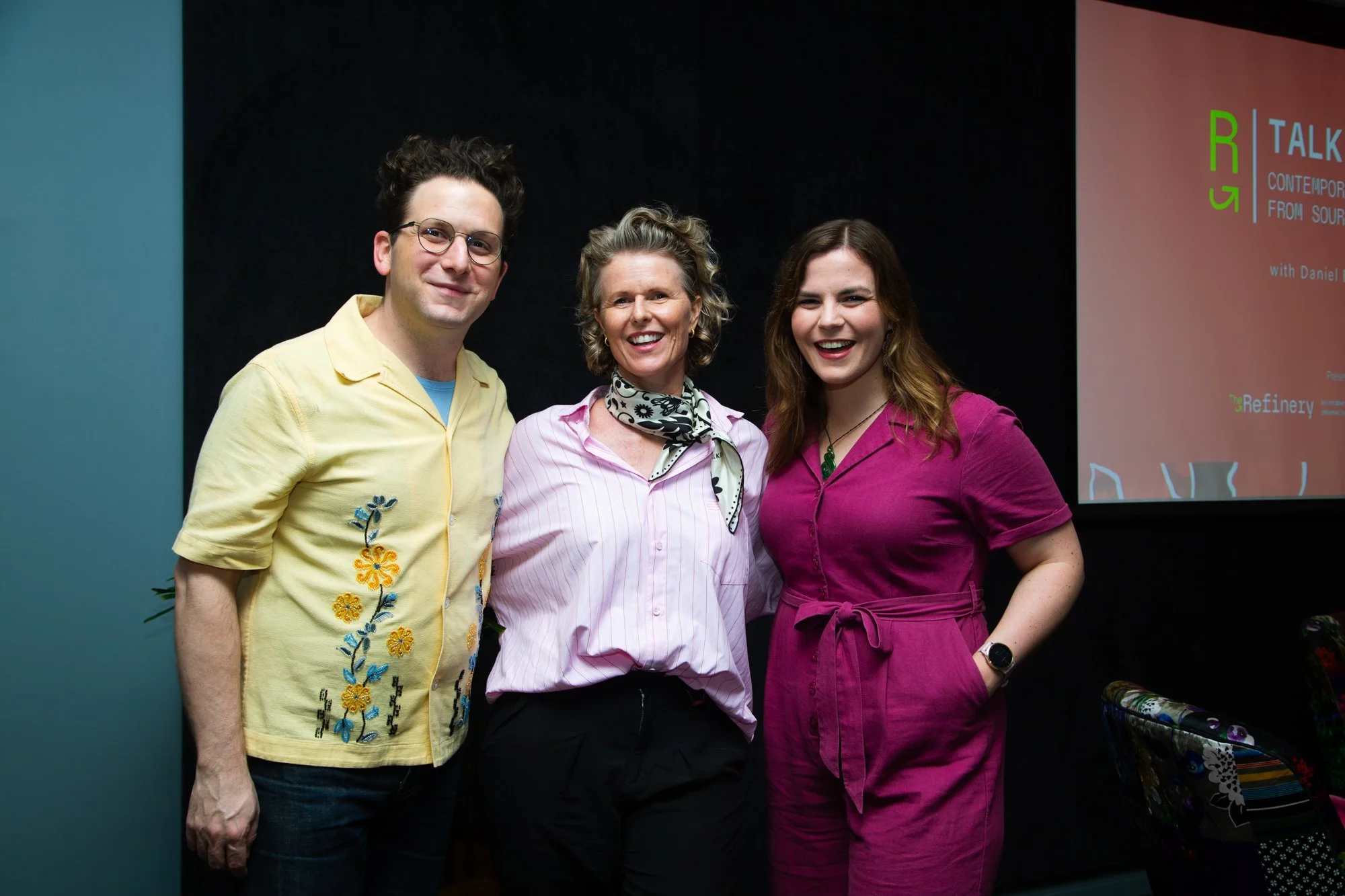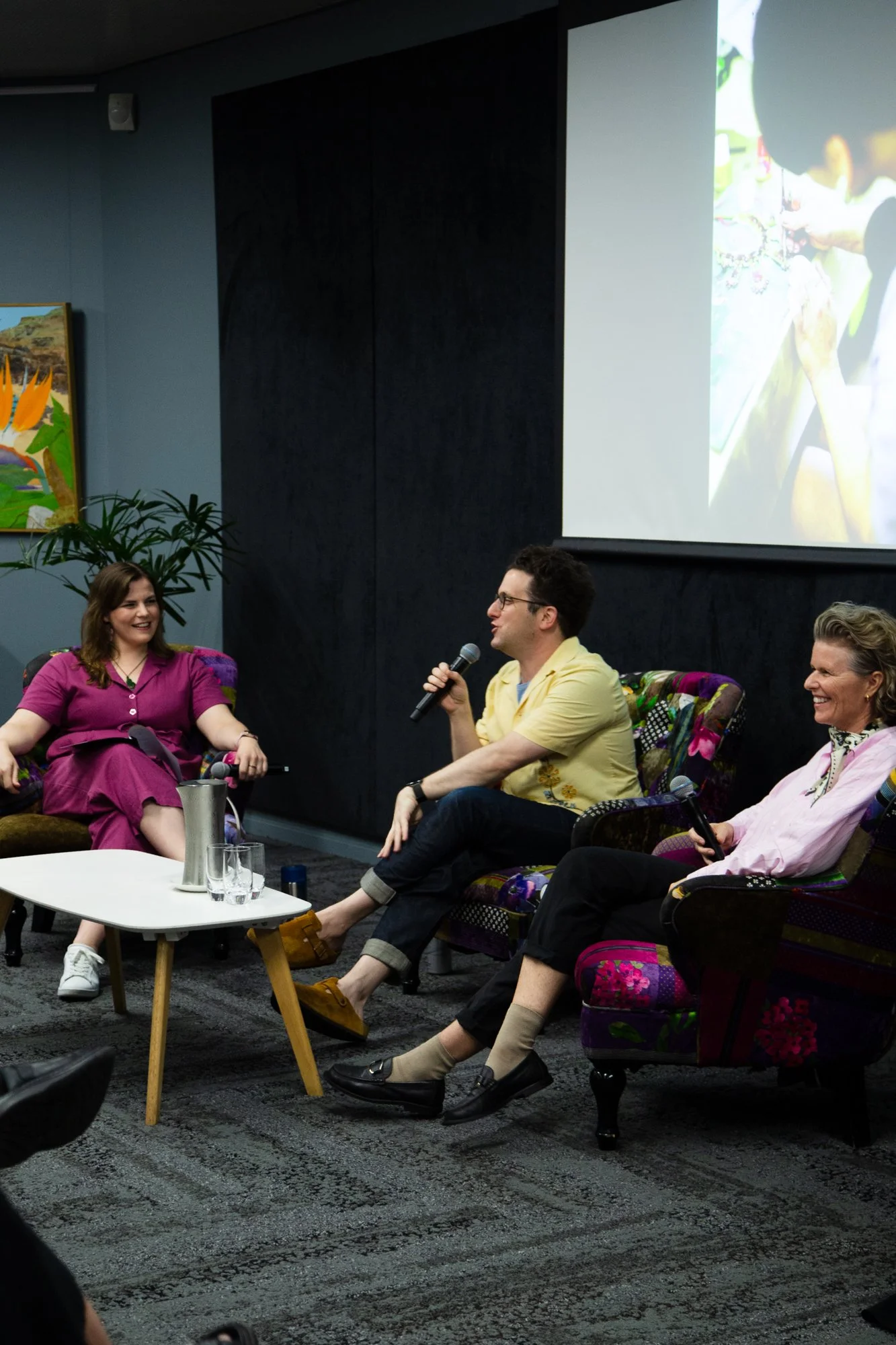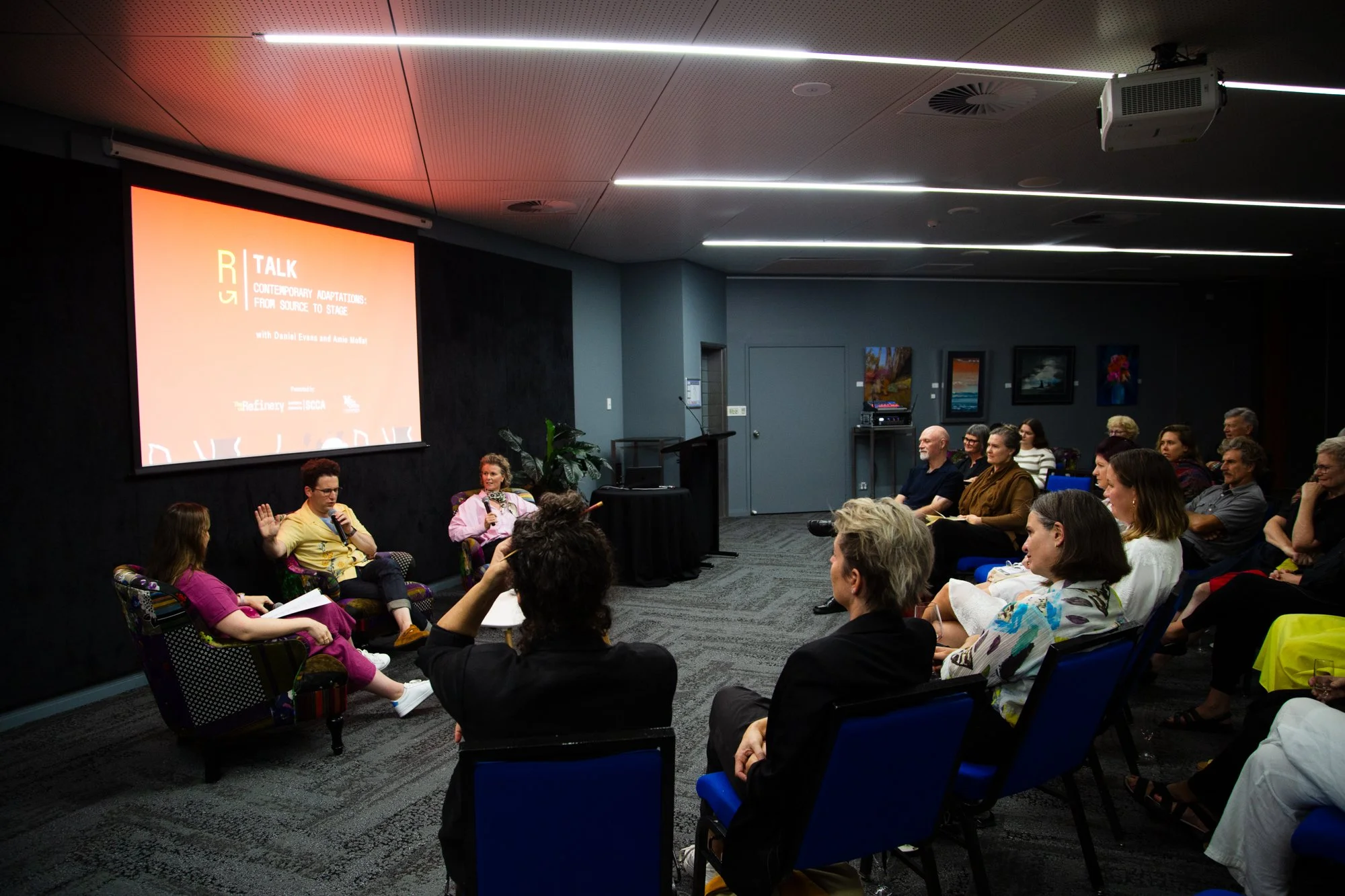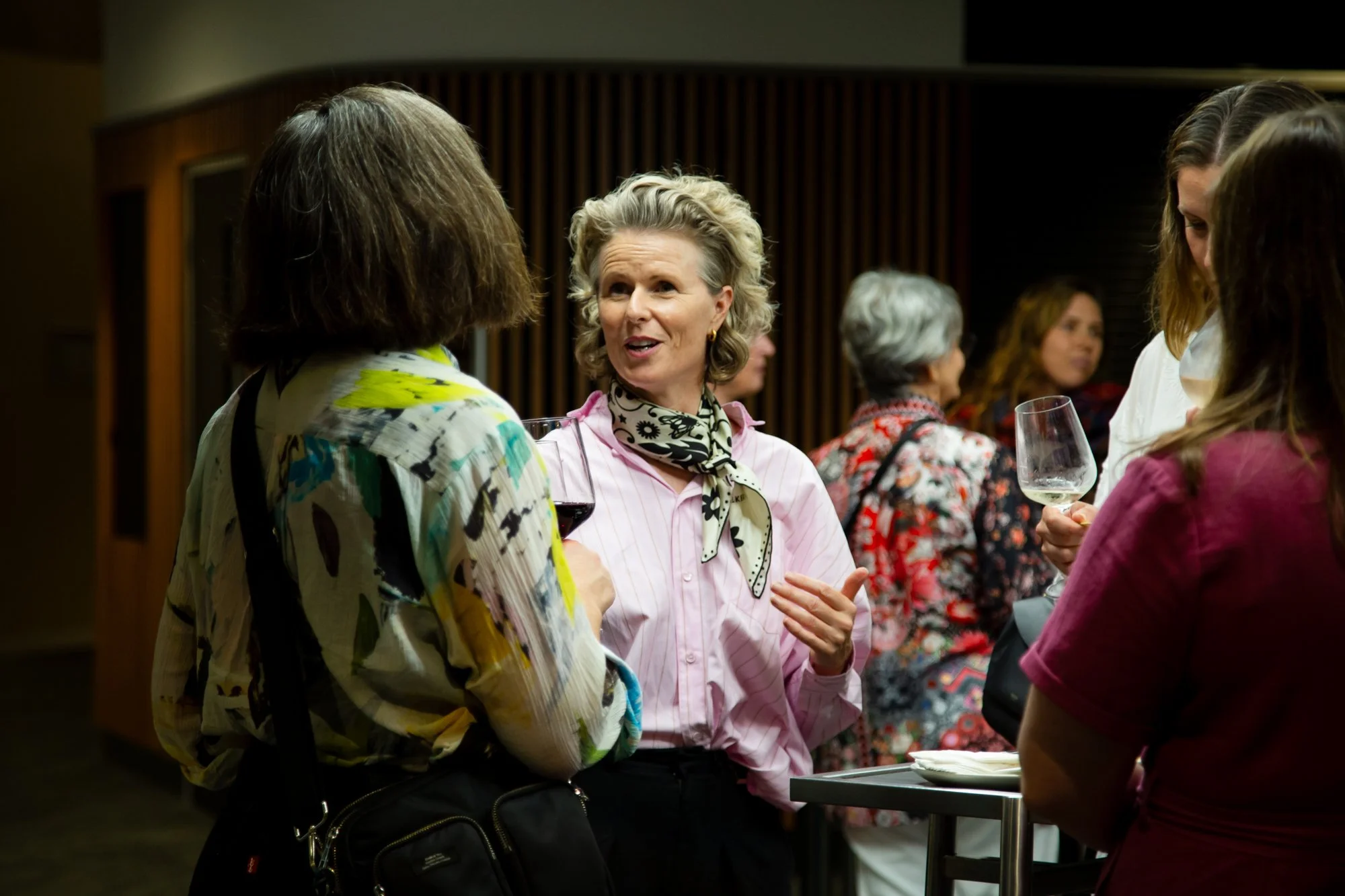Queensland Theatre’s Daniel Evans talks Contemporary Adaptations with Amie Moffat
The Beausang Room at The Events Centre, Caloundra, was the perfect venue for a gathering of performers, writers, theatre makers and creatives for the R|Talks event, Contemporary Adaptations: From Source to Stage. Featuring Artistic Director of Queensland Theatre Company, Daniel Evans and local creative producer, Amie Moffat, the panel discussion was expertly facilitated by Dr Hannah Banks, Lecturer in Theatre and Performance at UniSC.
Audiences were treated to a behind-the-scenes peek at how beloved stories can be reimagined for contemporary audiences as the panel unpacked the complexities of adapting iconic literary works into dynamic stage productions.
Honouring the Essence
To frame the discussion, Dr Hannah Banks opened with a quote from Linda Hutcheon’s Theory of Adaption, defining the process of adaptation “as a process of creation” and continuing, “the act of adaptation always involves both reinterpretation and then recreation.”
Creation was at the centre of Amie’s experience, working as Creative Producer on Red Leap Theatre’s acclaimed adaptation of New Zealander, Janet Frame’s 1957 novel Owls Do Cry. Rather than staging a literal retelling of the work, Red Leap worked from the ‘essence’ of Frame’s text, with the creative team using song and movement in the development phases to capture the book’s emotional resonance.
"The book is wildly poetic," Moffat explained, reflecting on the significant impact reading the novel as a teenager had on her. She revealed how the novel’s dense language became more accessible through music and allowed audiences, who may or may not have read the book, to create deep connections with the work. The adaptation honored the ‘feeling’ generated by the source text and honoured the creativity and experimentation with form for which Red Leap’s work is well-known.
Daniel Evans shared his recent experience co-directing Queensland Theatre Company’s Pride and Prejudice and how the team worked collaboratively to tap into “the marrow” of Austen’s work. Jane Austen’s classic presented the challenge of balancing faithfulness to the text, incorporating more recent cultural references from film adaptations (Colin Firth’s wet shirt moment) and adding a strong element of sisterhood and a contemporary feminist lens to the new work. With a creative team including die-hard Austen fan and co-director Bridget Boyle, Dan relayed hilarious anecdotes about the pressures felt when cutting characters from the book, the relief of the wardrobe department when he did so, and how a hard earned tick of approval from the Jane Austen Society was both a relief and a career highlight.
The conversation circled back to the role of faithfulness in adaptation. Both panellists shared that successful adaptations are not replicas, but are new works that honour the source’s essence, confirming Hutcheon’s observation that adaptation is not reproduction, but transformation, guided by the emotional and thematic core of the original.
“If you try to stay literal, you’ll fail,” Evans noted.
The Formula for Longevity
The conversation then turned to cultural products and how adaptation often involves a shift in medium, genre, and therefore context. Dr Banks introduced adaptation theory and its real-world implications, noting how adaptation is currently enjoying “a moment” in popular culture. She referenced recent commercial successes such as the video game turned hit TV series The Last of Us and 10 Things I Hate About You, a contemporary take on Shakespeare’s The Taming of the Shrew, as examples of enduring stories being reimagined for new audiences, in new ways.
This led to the question: Why do certain stories last?
Evans pointed to the power of strong characters and timeless themes as key ingredients. “These stories have great characters and universal truths that stand the test of time,” he said. In the case of Pride and Prejudice, he spoke at length about the general affection and relatability of Elizabeth Bennet as a character and how ‘Lizzy’ was also Austen’s favourite. Despite the book being published in 1813, the strength of her character in wanting to marry for love endures as a theme for a contemporary audience, especially given the Bridgerton phenomena, which certainly helped gain an audience following for this latest adaptation. As Dan stated, “the search for love and romance and the tension between love and money never gets old.”
The Real Value of Adaptations
The commercial appeal of adaptations is partly why they endure, with Evans suggesting they serve as a “point of entry” for audiences, offering a familiar gateway into the world of theatre. While adaptations can be a financially strategic choice, both panellists emphasised their deeper value lies in the accessibility and ability to invite new and more diverse audiences into the magic of live performance, noting that broadening appeal and audiences is critical to sustainability of theatre as an art form.
With both panellists also having experience as producers, they emphasised how important audiences are to making adaptations and theatre, more generally. “You have to make theatre for your audience”, Dan retorted, with the audience directly in front of him nodding and eager to participate in the audience Q&A following the panel discussion.
Audience questions were engaged, ranging from sharing personal experiences, reflections on ethics and asking for advice on the practicalities of staging. The room was filled with laughter and the camaraderie of creative minds coming together to discuss their love of theatre and literature.
With this positive energy flowing into The Events Centre foyer following the talk, the conversations continued over a drink as an evening rich in connection and exchange was celebrated.
Special thanks to The Events Centre Caloundra for hosting and co-presenting this RITalks event.
Photos by Jamie Davidson.
R|Talks is a series of facilitated conversations with leading artists from outside the region, designed to broaden the community’s awareness of diverse practices and offer a chance for peers and industry professionals to connect. Delivered by SCCA and supported by Major partners: the Queensland Government through Arts Queensland, Sunshine Coast Council through the Regional Arts Development Fund, and in partnership with the Creative Ecologies Research Cluster at UniSC.
Sign up for updates and be the first to know about our next R|Talks.

















